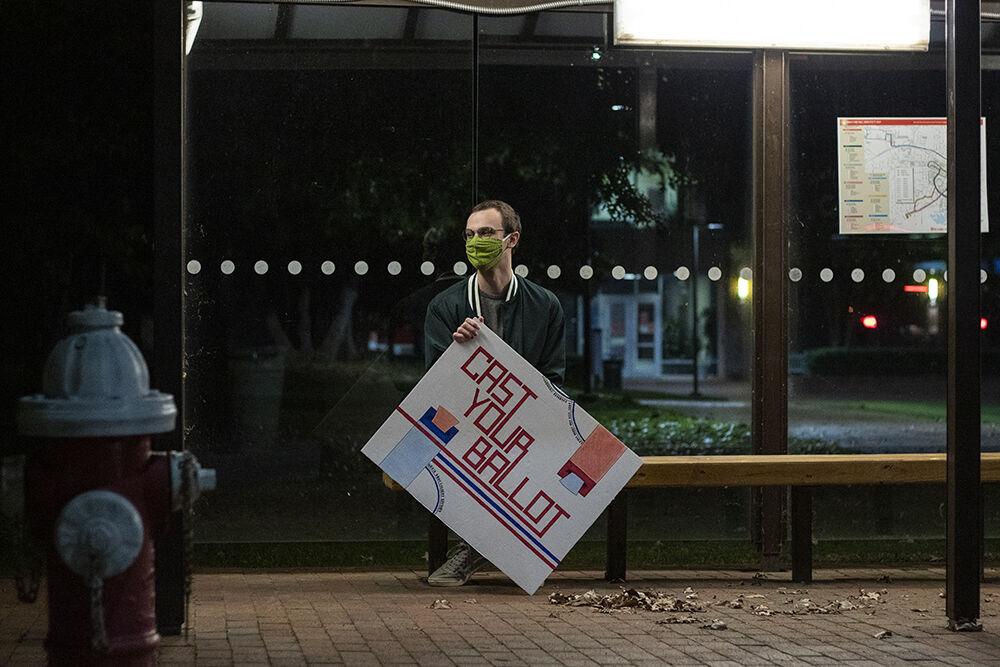With less than thirty days until Election Day on Nov. 3, one might be wondering what NC State students are discussing in regards to platform issues, civic engagement and how to converse with others in a politically polarized era. In light of COVID-19, this election season looks drastically different from much of what the U.S. has ever previously seen and is considered to be the most important election of our time. In order to gain an understanding of what the conversation on campus is, we turned to students and faculty members.
Cailin Peterson, a fourth-year studying microbiology and psychology and the co-president of the Environmental Student Association (ESA), a nonprofit organization at NC State, addressed the value of educating oneself on different platform issues.
“I would say, especially in the U.S., that a lot of our environmental policies could be very different and those are the only ways to make change,” Peterson said. “We’re already seeing climate refugees in the United States from the fires, so focusing on [environmental] advocacy is something that I have personally been trying to do.”
In regards to how students can become more involved, Peterson stressed the value of meetings and events that are being held, such as those for ESA, where one can learn about issues and figure out what it is that they can do about them.
Still, with constant news cycling daily, it may be hard for individuals to understand what is worth paying attention to. Noah Grady, a fourth-year studying sociology and political science and a member of Young Democrats of North Carolina (YDNC), says that with all the white noise, it’s important to remain focused on the real platform issues.
“One thing in particular that [YDNC is] focusing on this year is organizing young people and social justice,” Grady said. “College-aged individuals are the biggest, most diverse voting block, but we’re also the least consistent when it comes to voting. As young people, we have to get out and vote.”
Andy Lam, a fifth-year studying materials science and philosophy and the director of Government Affairs in Student Government (SG), agrees with this, stating that SG is concerned about voter engagement and turnout among college students. In order to combat this, Lam and other SG members are promoting Talley Student Union as an early voting site to get the word out.
In terms of why people should vote and what resources they can use to become more involved, Lam says to utilize NC State resources as well as social media platforms where information is constantly being shared.
“Why not use your voice by voting for people who best represent you in issues that matter to you?” Lam said.“Voting also matters because there are people who don’t have the right to vote, and you are representing their voices as well.”
Andrew Taylor, a professor of political science in the School of Public and International Affairs, jokes that there isn’t anything he isn’t paying attention to during this campaign. He also mentioned how fundamentally different this election is, even from a college campus perspective.
“The trouble is that there is no campus life to speak of this semester,” Taylor said. “Normally, we would have people together as students and faculty. There would be an intellectual life here where we would really be looking at the campaign from the perspective of interested outsiders […] There’s none of that [now].”
However, in the places where there is political conversation, it can quickly become polarizing and unpleasant. Anthony Solari, assistant teaching professor in the School of Public and International Affairs, says that he’s paying close attention to the polls and the psychological drivers of behavior and how they play out politically. He advises students to recognize that it is pivotal to respect one another’s opinions.
“In my classes, there’s a fair amount of conversation, but I set rules,” Solari said. “My students have very different views from each other. I’ve got very conservative students and very liberal students, and I set rules where students are not going to yell at each other or call each other names. You can hold your opinions and hold them forcefully and that’s fine, but you have to respect each other.”
Solari advises students to learn strategies in conversing with people who hold differing opinions by allowing others to speak and be heard and setting limits in the conversation.
“This is a really important election, and there are real differences on policy between the Republican and Democratic parties,” Solari said. “If there’s anything that any individual might think of that they care about, whatever side you’re on, pick any issue that’s at stake in this election and then get out and vote.”
Information on voting sites on campus can be found on the Pack the Polls website.








